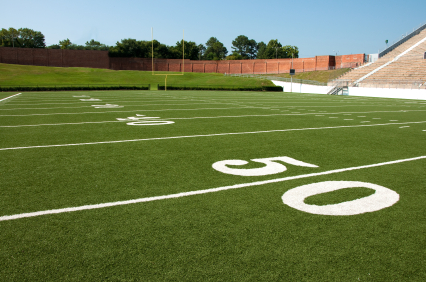New England quarterback Tom Brady laughed off accusation that his team used deflated footballs to win against Indianapolis Colts in a rain-soaked AFC Championship game. More about the controversy in the article below.

Deflated balls would have been easier to grip in Sunday night’s wet weather, but Tom Brady laughed off the allegations.
Image Source: nytimes.com
Sunday night was a smooth joy ride for the New England Patriots, with a 45-7 pounding of the Indianapolis Colts that propelled them into another Super Bowl. But Monday morning was a good deal bumpier, with the disclosure that the N.F.L. was investigating whether the Patriots used deflated footballs to gain an unfair advantage in Sunday’s game.
The game was played in the rain, and deflated balls would have been easier to grip in the wet weather. But Patriots quarterback Tom Brady, who completed 23 of 35 passes for 226 yards and moved the ball up and down the field with ease, was having none of it.
Asked about the accusation during his regular Monday appearance on the Boston radio station WEEI, Brady laughed it off.
“I think I’ve heard it all at this point,” Brady said. “Oh, God. It’s ridiculous.”
He went on to add: “That’s the last of my worries. I don’t even respond to stuff like this.”
Brady said he had been unaware of the issue until Monday morning, and Patriots Coach Bill Belichick, in a conference call with reporters, said the same.
“We’ll cooperate fully with whatever the league, whatever questions they ask us, whatever they want us to do,” Belichick said.
Asked if the Patriots used deflated footballs, Belichick said, “The first I heard about it was this morning.” Asked whether there could be an advantage to using deflated footballs, Belichick said: “Look, you’re asking the questions. I’m just trying to answer them.”
An N.F.L. spokesman, Michael Signora, confirmed that the league was investigating.
Bob Kravitz, a former columnist for The Indianapolis Star who now works for WTHR-TV in that city, was the first to raise the issue, addressing it on Twitter on Sunday night. At the start of the third quarter, the referees did replace one ball with another while the Patriots were on offense.
For every N.F.L. game, each team has at least 12 balls that it has prepared according to the needs of its starting quarterback. The balls are switched out from sideline to sideline depending on which team is on offense.
According to N.F.L. rules, teams are required to inflate balls to 12.5 to 13.5 pounds per square inch and to make them available for testing by the referee 2 hours 15 minutes before kickoff.
The referee is the “sole judge as to whether all balls offered for play comply” with league specifications, according to the rules. Some balls are designated for kicking only.
Patriots players said Monday that they knew nothing about the accusations.
Left tackle Nate Solder, who in the third quarter caught one of Brady’s three touchdown passes, told reporters: “I don’t know anything about that. I’m glad I caught it.”
Wide receiver Julian Edelman told reporters, “I think it’s just a story.”
In November 2012, the Pacific-12 Conference fined and reprimanded the University of Southern California, then coached by Lane Kiffin, for using deflated footballs in a game against Oregon. An investigation by the university determined that one of the student managers had intentionally deflated the footballs, acting on his own. He was fired.
The charge against New England comes a week after the Patriots used trick formations, all legal, to defeat Baltimore, drawing objections from the Ravens.
The former New England linebacker Tedy Bruschi, an analyst for ESPN, dismissed the latest allegations as more sour grapes.
“It does get old,” Bruschi wrote on ESPN Boston. “Coaches complaining they weren’t ready for formations. I’ve heard it all. There is a long line of people who want to find some excuse for how the Patriots have had success for so long, and the bottom line is that it’s good coaching and good players.”
In 2007, the Patriots were stripped of their 2008 first-round draft pick after the N.F.L. determined that the team had violated league rules when a Patriots staff member videotaped signals by Jets coaches during the season opener at the Meadowlands. In what has come to be known as Spygate, New England was also fined $250,000, and Belichick was fined $500,000.
Hello, I am Jason Goldblatt, a crazy football fan who lives for the thrill of the sport. Check out my blog for more of my musings from the bleacher and enter in the ultimate fan experience with a daily dose of sports news and updates from around the world.















